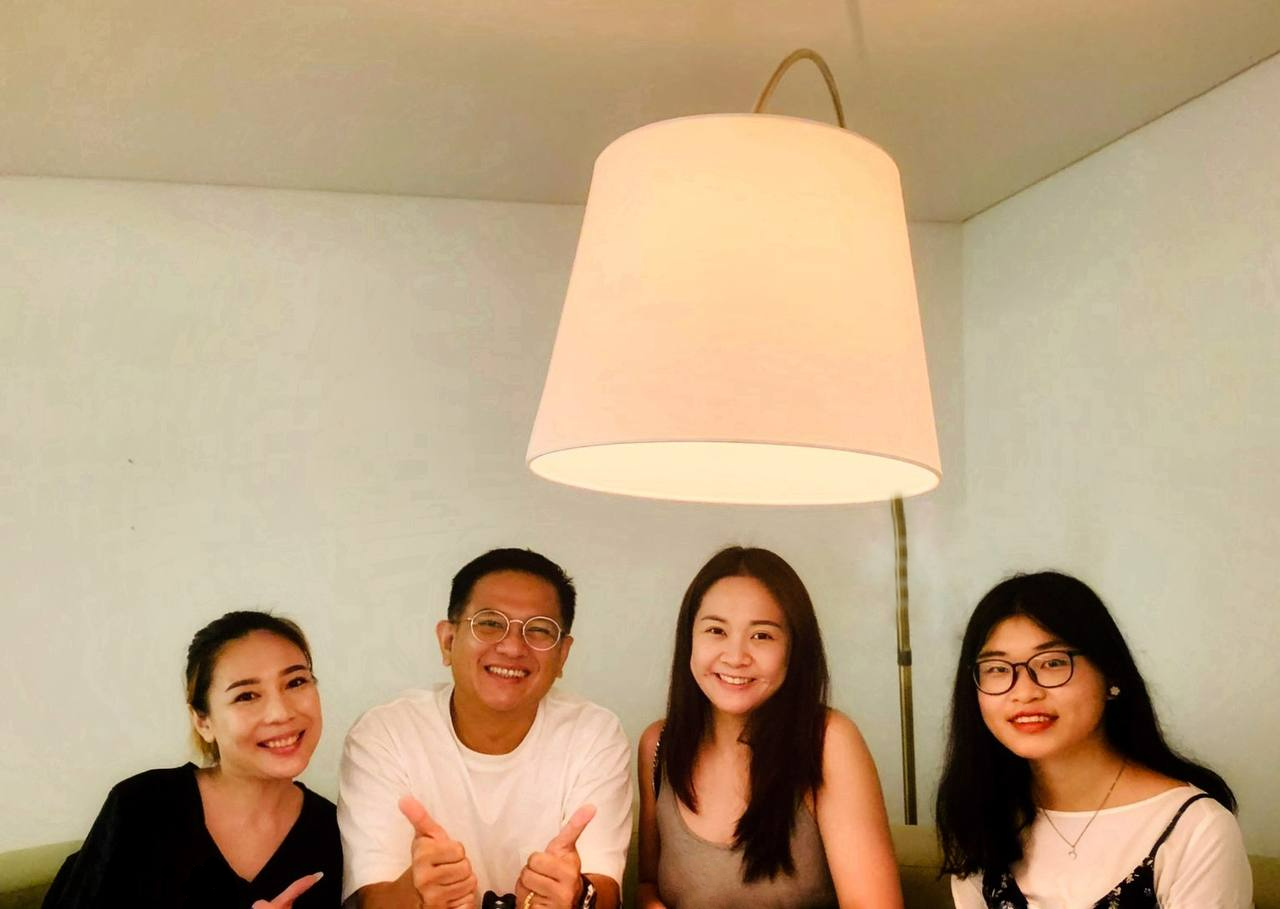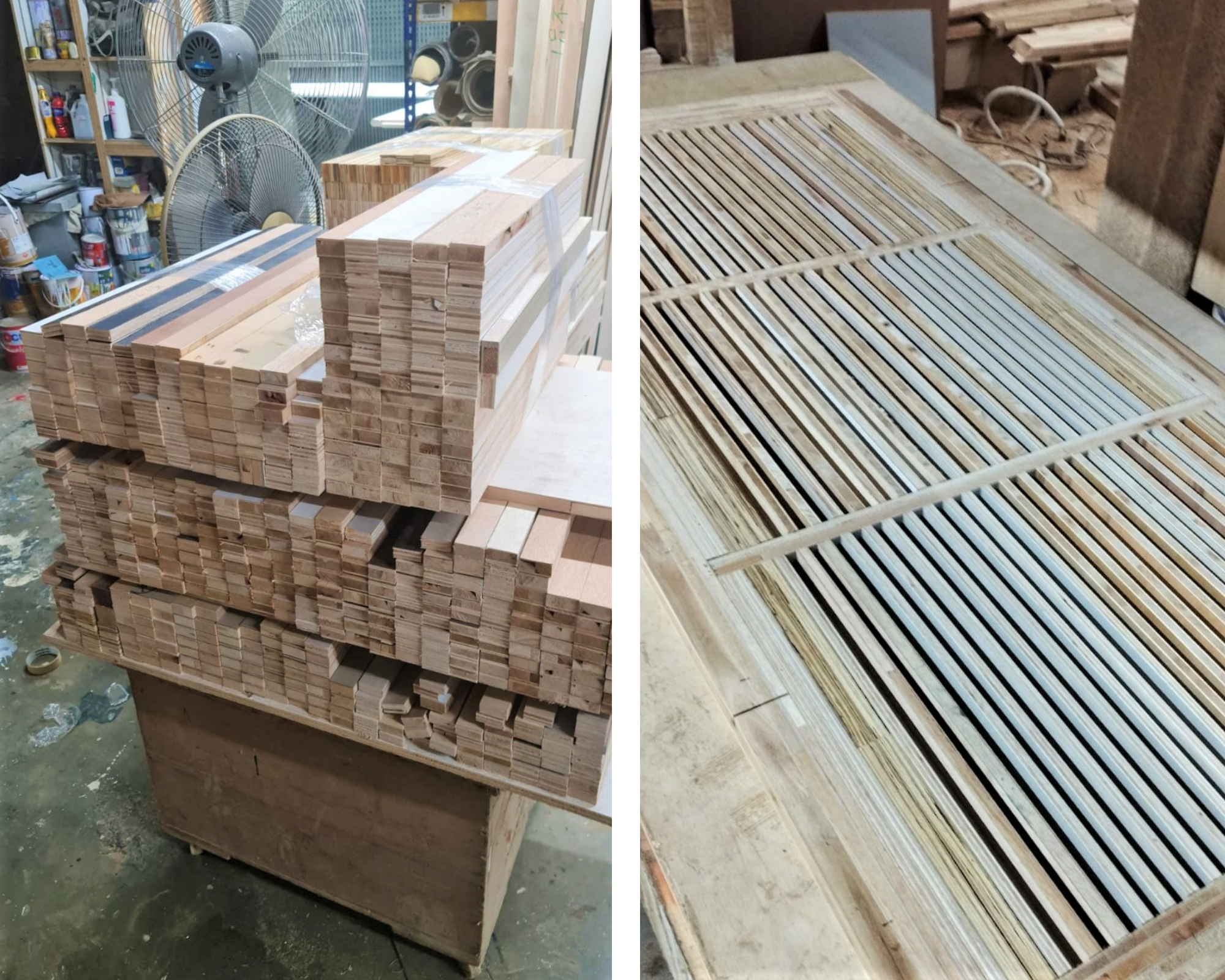
#Sustainability Snapshot with IN-EXPAT
How Has COVID Spurred Our Members to Become More Conscious About Sustainability?

From left to right: Ms Jasmine Chia (Interior Sales Designer, IN-EXPAT), Mr Eric Lee (Managing Director, IN-EXPAT), Ms Joey Chia (Interior Sales Manager, IN-EXPAT) and Teng Chu Yu (Sustainability Executive, SFIC)
Before 2019, IN-EXPAT had briefly considered how they could incorporate sustainability into their business. However, the supply chain disruptions and other impacts of COVID-19 were the turning point – they spurred IN-EXPAT to start thinking more deeply about how they can ameliorate sustainability-related risks in their business and seize sustainability opportunities in their business processes and practices. As their management was already interested in recycling surplus materials, they got the ball rolling in no time.
To IN-EXPAT, sustainability can be translated into multiple meanings that are tied to concrete actions. For instance, sustainability means pursuing a lower carbon footprint and switching from paper to tablets when they design and present their proposals. Since 2019, they have been sending their clients links to view 3D walk-throughs of their proposals instead of printing them out on paper. This saves trees, which are important carbon sinks that keep more carbon out of the atmosphere, whilst avoiding the carbon that would otherwise be emitted from producing and transporting the paper.
Sustainability to IN-EXPAT also means maximising the use of wood to minimise the waste they generate. For instance, they recycle odd-sized plywood to make semi-core bedroom doors (see photos below).

Photo Credit: IN-EXPAT
Additionally, sustainability to IN-EXPAT means leveraging technology to increase precision and reduce wastage, whilst creating better quality products. They make use of PYTHA software, Computer Numerical Control (CNC) panel saws and three newly bought CNC routers for odd-sized cuts to increase the precision of their cuts on plywood. These design and manufacturing technologies have helped IN-EXPAT reduce wastage during their fabrication process.
Though they try their best to optimise sustainability in their operations, IN-EXPAT believes that sustainability doesn't just start from them. Sustainability requires an effort from the entire supply chain, along with the government and other stakeholders.
Leveraging Sustainability to Drive Business Development
Pursuing sustainability has helped IN-EXPAT save on raw material and waste management costs whilst doing good for the environment. These benefits of sustainability have been especially visible from their production of wooden semi-core doors from surplus odd-sized plywood. IN-EXPAT is also seeking to maximise the use of their surplus coloured laminates as far as possible, which have been piling up in their factory since the onset of COVID-19. This will give them similar gains for their business.
Beyond manufacturing, riding on the wave of more sustainable trending interior design styles like wabi-sabi has helped IN-EXPAT reach out to more conscious clients who are more willing to embrace surplus or more minimally-treated wood. These woods have their own unique character and can add value to their clients' spaces. They also open up opportunities for more conversations on sustainability.
Developing Sustainability Plans
Moving forward from an operational perspective, IN-EXPAT is working on leveraging more technologies which can help advance sustainability – including an enterprise resource planning (ERP) system. This ERP system will help them digitalise their hardware, worker site reports, accounting and other daily operations through cloud storage technologies. With the ERP system, they no longer need to print and store paper reports and other resources that can be digitalised, further reducing their carbon footprint.
In terms of cleaner energy, IN-EXPAT is hoping to install solar panels on the rooftop of their office in the near future. As the cost of solar panels has been moving downward in recent years, IN-EXPAT hopes that solar panels will soon become affordable enough for them to adopt solar power.
Beyond their internal operations, IN-EXPAT may also be looking into applying for external sustainability certifications, as more and more consumers are interested in green labels and other certifications on health & safety. Aligning with some sustainability certifications’ criteria on supply chain management, they also hope to meet more suppliers with green labels and sustainability initiatives to collaborate with for their projects.
IN-EXPAT shares, “The cost of materials from suppliers with greener materials is not necessarily higher, so working with more sustainability-conscious suppliers can strengthen our corporate responsibility for the environment -- whilst not compromising on our bottom line!”
----------------------------------------------------------------------------------------------------------------------------------------------------
Introduction to IN-EXPAT
Founded in 2008 with a humble 1,500 sq. ft workshop and a small team of dedicated craftsmen, IN-EXPAT set out with an ambitious vision and has grown around ten times to a factory size of 15,000 sq. ft. IN-EXPAT has a team of designers, craftsman, quantity surveyors and project management staff who collectively believe that design projects should be easy and made transparent for everyone.
Cluster: Contract Manufacturing & Design
Sustainability Themes:
- Waste reduction (including recycling), carbon reduction (yet to start measuring)
Environmental Initiative Highlights:
- Recycles surplus cut plywood to make semi core wooden doors
- Reduces paper usage by sending clients links to view 3D walk-throughs of proposals instead of printing them out on paper.
Potential Environmental Initiatives:
- Installation of solar panels on office rooftop
----------------------------------------------------------------------------------------------------------------------------------------------------